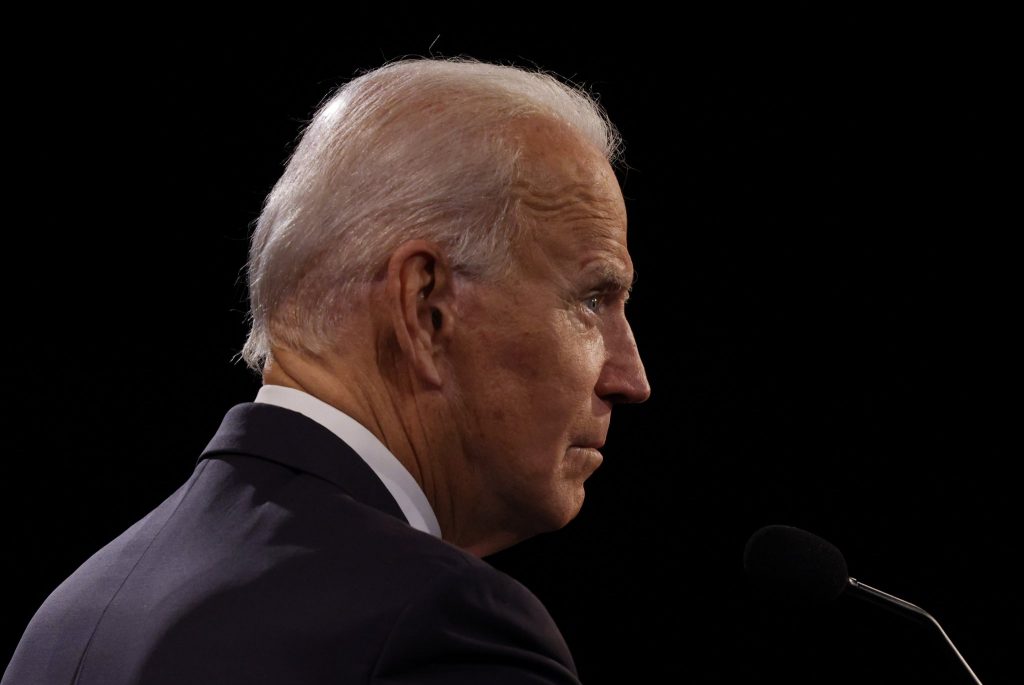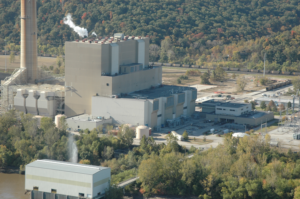5:45
News Story
Environmental justice expected to get more attention in the Biden administration
WASHINGTON — Community activists and some Democratic lawmakers have long sought to give low-income communities more latitude to challenge the cumulative effects from air, water and industrial pollution and climate change.
And they expect to have a ready ear in the White House in 2021, unlike the last four years.
“We have somebody to talk to now,” said House Natural Resources Committee Chairman Raul Grijalva (D-Ariz.), who pushed a broad environmental justice bill that cleared the House this fall as part of a broader energy package.
The issue of environmental justice has gained more traction as the COVID-19 pandemic revealed disproportionate health concerns facing members of marginalized communities.
The NAACP estimates that 71 percent of Black Americans live in counties in violation of federal air pollution standards. Those communities often have worse health outcomes and higher rates of asthma and cancer, problems that have become more pronounced as the COVID-19 respiratory illness has added another threat.
President-elect Joe Biden’s new transition plan highlights environmental justice as one of his incoming priorities — a significant shift for an issue that has been on the margins before.
The Biden team updated its website last week with four policy areas the incoming administration will focus on: COVID-19, economic recovery, racial equity and climate change.
The climate change plan says it will “ensure that environmental justice is a key consideration in where, how, and with whom we build … righting wrongs in communities that bear the brunt of pollution, and lifting up the best ideas from across our great nation — rural, urban, and tribal.”
Biden and Vice President-elect Kamala Harris both spoke on the campaign trail about the importance of protecting fenceline communities from pollution. And Harris, a Democratic senator from California, introduced sweeping environmental justice legislation in the Senate last summer, just days before Biden tapped her as his running mate.
‘It makes it so much easier’
Advocates who have been pushing for environmental justice protections said having Biden and Harris in the White House will help their cause.
“It makes it so much easier. It is never going to be easy, but it does make it easier to have somebody who is there in the White House … who is anchored in a positive way to these issues and thinking critically about them,” said Mustafa Santiago Ali, vice president of environmental justice, climate and community revitalization at the National Wildlife Federation.
Ali helped found the Environmental Protection Agency’s environmental justice office in 1992, under the George H.W. Bush administration. He had a 24-year career in the federal government before he resigned from leadership of the EPA’s environmental justice office at the beginning of the Trump administration.
“The Trump administration brought us back to a low point,” said Ali.
The Trump administration suspended key environmental reviews and proposed rollbacks to the National Environmental Policy Act, the nation’s bedrock environmental law that sets standards for public comment.
Biden and Harris could reverse some of those changes through new regulations or executive orders or prioritize environmental justice reviews with new agency positions.
During the Obama administration, Ali oversaw an interagency working group on environmental justice but said he was the only senior adviser on the issue.
“It was impossible for me to be in all the agencies and departments, so hopefully the next administration will have senior level people [in all of the agencies] who have environmental justice experience and can help navigate a set of choices,” Ali said.
The Climate Equity Act that Harris proposed in the Senate would create a dedicated Office of Climate and Environmental Justice Accountability within the White House and require the federal government to consider the effects of all environmental regulations on low-income communities.
The proposal is an expanded version of a bill she and Rep Alexandria Ocasio-Cortez (D-N.Y.) introduced last year.
Biden also put forward a $2 trillion climate plan as part of his campaign that set a goal for 40 percent of all clean energy spending to go to disadvantaged communities.
‘A really good shot’ at legislation
Meanwhile, Grijalva plans to push his environmental justice bill in Congress again. His proposal would give communities like those in St. James more recourse to challenge the cumulative effects of multiple industrial facilities in their area.
Grijalva and Rep. A. Donald McEachin (D-Va.), the original cosponsors of the environmental justice bill, each said after the election that it is one of their top priorities heading into the new Congress.
“Our country is in the midst of unprecedented, intersecting crises and the American people are demanding a bold, whole-of-government response. The Environmental Justice for All Act—and the process to create this comprehensive legislation—is a critical part of the solution,” said McEachin, in a statement.
The major hurdle, Grijalva says, remains the “bastion of ‘no’” in the Senate. But he is hopeful environmental justice concerns in both rural and urban areas may be able to break the partisan divide.
“I say this with hope probably more than reality, but this federal legislation we have has a really good shot,” said Grijalva.
Their proposal made significant progress in the House this year, when House lawmakers included most of it as part of a large energy bill that cleared the House. The Senate did not consider it.
Our stories may be republished online or in print under Creative Commons license CC BY-NC-ND 4.0. We ask that you edit only for style or to shorten, provide proper attribution and link to our website. AP and Getty images may not be republished. Please see our republishing guidelines for use of any other photos and graphics.





